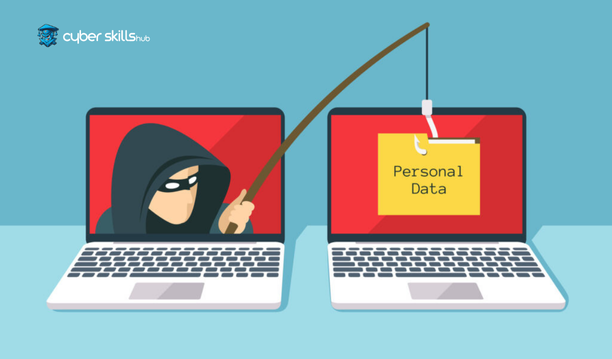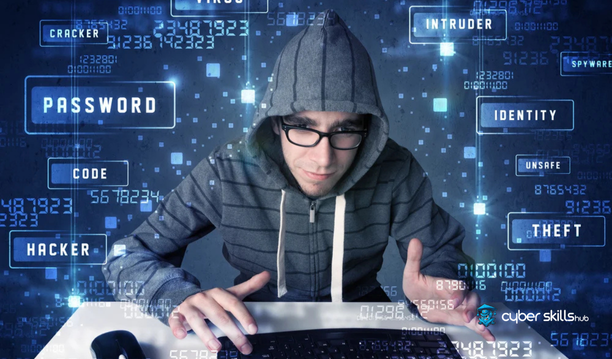Currently Empty: $0.00

A hacker is a person who finds the weak points of security systems, such as the forced opening of a house door. A hacker provides unauthorized access to computer systems by infiltrating them with technical skills over the Internet and network, and uses various methods to hack these systems.
Hackers use various methods to steal personal information or sabotage systems. A hacker can detect vulnerabilities in the system by using his technical skills. They have a high level of technological knowledge and are cunning.
Hacker Types
Hackers can be divided into several types according to different motivations, skills and ethics, with distinct differences between these types in terms of hacking methods and purpose. White hat hackers are ethical hackers who work to find and fix security vulnerabilities. Black hat hackers attack systems with the aim of illegally profiting from them. Gray hat hackers show characteristics of both types, sometimes adhering to ethical codes and sometimes engaging in illegal activities. Finally, hacktivists attack systems for political or social reasons. Each type of hacker can have a different impact on the security world and the measures to be taken against them can also vary.
Hackers With Black Hats
Hackers with black hats, are hackers who aim to make a profit by carrying out illegal activities. They usually infiltrate systems for financial gain, personal revenge or political reasons.
These hackers get around firewalls with various techniques such as malware and phishing. They find and exploit system vulnerabilities, steal information, or crash systems.
Crackers operate in a wide range of activities, from those who pirate software over the Internet to those who break the license keys of games. Software developers and security firms are constantly developing new protection techniques to prevent malicious actions of crackers. This situation turns the world of computer security into a constant cat and mouse game.
45% of cyber attacks are carried out by black hat hackers.
The activities of black hat hackers pose serious threats both to individual users and to the security of large corporate structures. They can leak information with various malicious software (viruses, trojans, ransomware) and social engineering techniques. Therefore, it is vital to use strong passwords, keep software up to date and perform security scans regularly to ensure system security. Hackers are always developing new technical methods, so a continuous security strategy is necessary.
White Hat Hackers
White hat hackers, are ethical hackers who work to improve the security of computer systems. Their purpose is to ensure cyber security by finding and reporting system vulnerabilities.
- Identifies and reports system vulnerabilities.
- Company systems it tests against attacks.
- Cyber security protocols develops and implements.
- Organizes internal trainings.
White hat hackers gain competence through certification programs.
Such hackers are often employed by companies and government agencies.

Hackers with Gray Hats
Gray hat hackers straddle the line between white hat and black hat hackers, who report vulnerabilities they find but may also use illegal means to hack into systems. They can use their knowledge in both legal and illegal ways. Often, they report vulnerabilities they find, but they don’t always do so in an ethical way.
This type of hacker can qualify themselves as ethical hackers. However, their methods and goals may not always be transparent.
Gray hat hackers can be well intentioned by finding and reporting vulnerabilities. At the same time, they may use this information without permission.
In some cases, grey hat hackers may illegally attempt to detect system vulnerabilities. This brings with it other risks.
While these hackers can contribute to improving system security, they also have the potential to cause harm by breaking the rules. Companies and institutions should be careful when working with gray hat hackers.
As a result, it is important to carefully evaluate the ethical and legal dimensions of the activities of gray hat hackers. This balance creates a complex dynamic in the world of cybersecurity.
Methods Used by Hackers
Hackers aim to achieve their goals using various methods. Some of the most common methods include phishing, malware, DDoS attacks, SQL injections and zero day exploits. These methods are often used to gain unauthorized access to systems, steal data or disrupt system services.
While phishing aims to capture sensitive information by tricking users, malware transmitted over the internet can leave permanent damage to systems through malicious software.
Phishing
Phishing is a phishing attack.
Phishing attacks are aimed at collecting information by abusing the trust of users. These attacks are usually carried out through fake emails, websites or messages. When users believe requests from these fake sources, they can share their sensitive information and cause it to fall into the hands of cybercriminals.
Phishing is very diverse.
Malicious actors, social engineering using their techniques, they target their victims – sending them emails or messages claiming to come from a bank or government agency – in this way they try to steal critical data such as usernames, passwords and credit card information.
To protect against phishing attacks, it is important to carefully verify the source of incoming emails and messages, never click on unknown links, and do not share personal information. Users can become more protected against such attacks by taking security measures such as two-factor authentication.
Being aware and informed about phishing attacks is an important part of cyber security awareness. Until 2024, research has shown that phishing attacks are becoming increasingly sophisticated. In this context, continuously educating users and following up to date security protocols stands out as one of the most effective defense methods against phishing attacks.
Another common method of hackers is to spread stolen license keys for popular software. These keys allow the original software to be used, causing huge financial losses to software companies. Furthermore, cracked software used by crackers often carries security risks, such as malware, and can leave users vulnerable to greater threats.
Malware
Malware is a type of software designed to damage computer systems.
These software can be found in various types, such as viruses, worms, trojans, ransomware, and spyware. Viruses usually infect users’ computers by hiding inside legitimate programs and can cause data loss or system crash. Ransomware, on the other hand, is malicious software that does not return these files unless a ransom is paid by locking or encrypting users’ files.
Spyware is another type of malware used to collect users personal information. These software are installed on the computer, usually without the user noticing, and monitor e-mail, messaging, and web browser activities.
To protect yourself from malware, it is important to use a reliable antivirus software and perform regular system scans. In addition, closing security vulnerabilities by keeping software and operating systems up to date and avoiding downloading software from unknown sources are also one of the main ways to protect against malware. Being aware of cyber security and constantly learning about it will be a strong step in defending against malware.

How to Protect Yourself
You can increase the security of your accounts by using strong and unique passwords. It is necessary to set a different password for each account and change these passwords regularly. In addition, you can create an additional layer of security by using the two-factor authentication method.
It is also important to avoid public Wi-Fi networks and encrypt your internet connection using a VPN. Regularly updating your devices and applications is an effective way to protect against security vulnerabilities.
Strong Passwords
Strong passwords are one of the most basic and important elements in terms of cyber security.
Having strong passwords ensures that your accounts are better protected against malicious attacks. Therefore, you should create passwords that are as complex and difficult to guess as possible. For example, you can increase the security level of a password by using a mixture of upper and lower case letters, numbers, and special characters.
Personal information should be avoided with a strong password. Using easy to guess information such as birth dates, names, or common words as passwords can make it much easier for cybercriminals.
Finally, it is important to update your passwords regularly and use different passwords for each account. You can use a password manager to store your passwords securely, saving you the hassle of having to remember them. Such applications provide an additional layer of security against cybercriminals by securing your passwords with cryptographic methods.
Two Factor Verification
Two-Factor Authentication (2FA) adds an additional layer of security to the user account.
This security method requires entering a password and then completing a second verification step. The second step can usually be an SMS code, a verification application, or a hardware key. This extra step ensures that your account remains secure even when your password is stolen or can be guessed.
Two-factor verification, which is an effective way to improve account security, is quite simple to use. On platforms that offer this service, it usually appears as an option that can be easily activated under account settings.
Two-factor authentication helps keep your accounts secure and provides additional protection against phishing attacks and other cyber threats. Ideal for accessing highly sensitive data, such as financial information, it significantly simplifies your daily life, minimizes vulnerabilities and protects your personal information from cyber attacks.
Security Software
Security software is one of the most important elements of protecting your computer, network or mobile device. They provide defense against attacks by hackers and keep your data safe.
Security software such as anti-virus programs, firewalls and malware detection are specially designed to prevent cyber threats. These software scans for vulnerabilities in your system, detects and neutralizes viruses and malware. In addition, it provides protection against new threats with constant updates and keeps the security of users at the maximum level.
Antivirus Programs
Antivirus programs play a critical role in cybersecurity.
These software prevent malicious software from infiltrating your computer or mobile device. Especially while threats coming over the Internet pose a great risk, antivirus programs detect and neutralize these threats instantly. Nowadays, cyber attacks are getting more complicated every day, and antivirus programs also have to keep up with these innovations.
Antivirus programs, not only viruses, but also worms, trojans and it blocks other malware as well.
Antivirus engines become prepared for new threats by receiving constant updates. Therefore, it is vital to check whether your antivirus software is up to date; otherwise, its protection capacity may be reduced.
Finally, there are various types and features of antivirus programs. Some offer real-time protection, while others perform in-depth scans. Choosing the most suitable one according to your specific needs and usage habits is one of the most effective ways to ensure your cyber security.
Firewalls
Firewalls play a critical role in preventing malware and intrusions by controlling network traffic. These software block potential threats by monitoring internet traffic.
Such software can be used both hardware and software.
Hardware firewalls are usually integrated into devices such as routers and provide network level protection.
Software firewalls, on the other hand, are installed on computers or servers and are effective in protecting individual devices.
Firewalls need to be constantly updated in order to function effectively. While attackers are developing new methods, these software also have to stay up to date.
As a result, firewalls are one of the cornerstones of cybersecurity. It is of great importance that you use a strong firewall for the security of your information and systems.
Frequently Asked Questions About Hackers
What does a hacker do?
The activities of a hacker (hacker) can be studied in a wide range of ways. Firstly, hackers who have various technical knowledge and skills exploit them by detecting system vulnerabilities and weaknesses. This process takes place in the form of finding vulnerabilities encountered in the software and hardware world and gaining access to information through these vulnerabilities. Cybercrime it may turn out this way.
How many types of hackers are there?
Hacker types are categorized according to their motivation and the purpose of their activities. One of the most common types of hackers is known as white hat hackers. These hackers usually work to improve the security of systems. Black hat hackers, on the other hand, are hackers who engage in illegal activities. They gain unauthorized access to systems and often act for financial gain or to steal information. Some hackers are referred to as gray hats. This group may sometimes act in good faith, like white hat hackers, and at other times may resort to illegal means, like black hat hackers. Gray hat hackers often engage in activities that push ethical boundaries. Finally, there are blue and red team hackers. Blue team hackers are professionals who protect an organization’s cybersecurity and develop pre-attack defense strategies. Red team hackers, on the other hand, test the security measures of the blue team by simulating attacks and exposing weak points.
Is a hacker a profession?
When talking about hackers, first of all, it is worth noting that this concept has different meanings. Beyond the negative image usually projected by the media, there is also ethical hacking. Ethical hackers, are professionals who test the security of systems and detect vulnerabilities. These people work in the field of information security and help institutions and individuals protect their digital assets. CyberSkillsHub many certificate program and with its course, it offers training to individuals who want to choose ethical hacking as a profession. These trainings make people aware of malware, security vulnerabilities and industry roles.
Who is the most dangerous hacker?
When considering the most dangerous hacker, the level of dangerousness of this individual is determined by the capabilities they possess, the organizations they target and the damage they spread. Among known hackers, Kevin Mitnick, Adrian Lamo and Gary McKinnon stand out. These hackers have caused serious damage to a wide range of organizations, from government agencies to private companies. Their methods include social engineering, advanced software vulnerabilities and zero day exploits.







